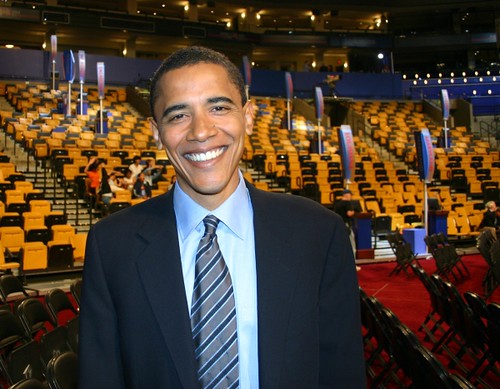Listen. I want to share something with you.
This quote can be found at the end of Paul Hawken's amazing book, Blessed Unrest. I'm going to talk more about the book, but first I want to share this quote with you.
There are two kinds of games - games that end, and games that don't. In the first game the rules are fixed and rigid. In the second, the rules change whenever necessary to keep the game going. James Carse called these, respectively, finite and infinite games. We play finite games to compete and win. They always have losers and are called business, banking, war, NBA, Wall Street, and politics. We play infinite games to play; they have no losers because the object of the game is to keep playing. Infinite games pay it forward and fill future coffers. They are called potlatch, family, samba, prayer, culture, tree planting, storytelling, and gospel singing. Sustainability, ensuring the future of life on earth, is an infinite game, the endless expression of generosity on behalf of all. Any action that threatens sustainability can end the game, which is why groups dedicated to keeping the game going assiduously address any harmful policy, law, or endeavor. With no invitation, they invade and take care of the finite games of the world, not to win but to transform finite games into infinite ones. They want to keep the fish game going, so they go after polluters of rivers. They want to keep the culture game going, so they confront oil exploration in Ecuador. They want to keep the hope game alive in the world, so they go after the roots of poverty. They want to keep the species game happening, so they buy swaths of habitat and undeveloped land. They want to keep the child game going; consequently, when the United States violated the Geneva Convention and bombed the 1,400 Iraqi water and sewage treatment plants in the first gulf War, creating sewage-, cholera-, and typhus-laden water, they condemned it as morally repugnant.Read it again, if you'd like.
That quote captures the essence of this book perfectly. Hawken aims to do nothing less than chronicle the history of the nonprofit movement that exists today - a million or more nonprofit organizations (or NGOs - nongovernmental organizations), all working separately and working together to improve the world.
He spends several chapters laying out the history - the icons (King, Gandhi, Thoreau and Emerson), the early movements (including the abolitionist movement, which he describes as "the first group to create a national and global movement to defend the rights of those they did not know") and then the eruption of NGOs around the world. He talks about the successes and the failures, the triumphs and the struggles (racism, sexism, classism, xenophobia) that still haunt the nonprofit world. He covers it all in less than 200 pages.
This is a dense book. Summing up over a million NGOs in two hundred pages is not a simple task. I found myself taking a break after every chapter to soak in all of the information. Yet the book is not textbook-heavy. He works in the grandest and broadest terms, and yet still uses anecdotes and concrete examples of the movement at work. It is a joy to read. But it's an immense topic, and in his effort to describe the giant network that is "the movement," he found it necessary to include an appendix of over 100 pages that attempts to broadly categorize the various groups that make up "the movement." The appendix alone is an astonishing exercise and a thing to behold.
Midway through the book, Hawken begins describing the human immune system. It seems tangential at first, but then he makes the great leap. He proposes that 'the movement' - the immense network of NGOs, all working to clean up and reform and revitalize their own little corner of the world - is working as the world's own immune system.
Our movement works independently - there is no grand agenda, no great magna carta that we have all signed, no talking points to which we all agree. We work without coordination - and yet we cover each other, we find the gaps left by others, we complement and compliment each other's missions and visions. Like an immune system, we operate as if steered by an unseen hand, rooting out evil and imperfections and attacking mercilessly so that the organism will continue. The organism is us. The organism is the world.
I have worked in a social justice organization, an environmental organization, a legal defense organization. I now work with seniors. I have made the argument since my first job that all of our work was all tied together, and I always talked it as "the movement". Social justice included the rights of prisoners. Protecting water was as important and was connected to fighting for universal health care. For years, I have carried in my head the idea that there was only one movement - an enormous movement, a connected network of groups working to better the world, all in their little way.
Paul Hawken brings "the movement" to life. He makes me hopeful that, in spite of all of our losses small and great, we are transforming the world and indeed, we may have already transformed it. Hawken's book reminds me that, despite the faults and missteps of our movement, the very fact that our movement exists is reason to hope. Our existence and the work we do everyday is a triumph for humanity. He makes me proud to be part of the movement. Everyone who makes their living in a nonprofit should read this book
















